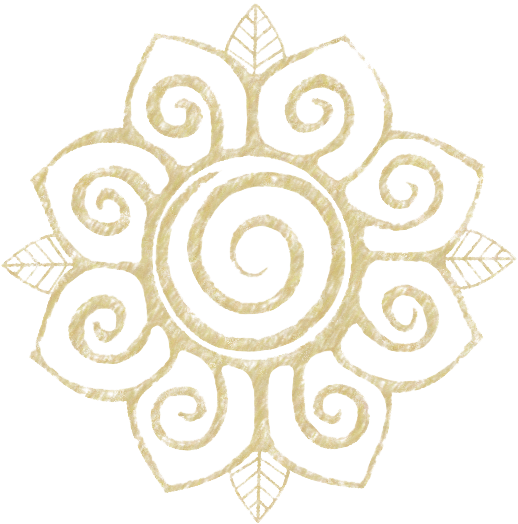BA, BSc, MA, M.Ed, MC, MSW, PhD, MA, M.Ed, MC, MSW.... what do all these mean?
Choosing a right counsellor can be very confusing, especially if you are trying to understand what all the letters following counsellors’ names mean. First, it is important to note that at this time terms “counsellor”, “therapist” and “psychotherapist” are not regulated in British Columbia. This means that anyone is able to set up a private practice and call themselves a counsellor. Yes, absolutely anyone! So someone who calls themselves a counsellor or psychotherapist might only have high school deegree or they might posessss a doctorate degree, but their doctorate is in Experimental Physics!
Things are changing and many counsellors hope that soon the name counsellor or therapist will be protected and only reserved for those with relevant education and experience. But at this point anyone can have a title of a counsellor, therapist or psychotherapist, even if they have no credentials, education, training, or experience. So it is important to be aware of counsellor’s education and professional designation.
Finding a counsellor is not difficult but it can be overwhelming to find one who is right for you. My best suggestion is to invest some time in researching before you make your decision. Finding a good match with a counsellor can save you time, money, and disappointment. Understanding counsellor's education and training background is a first step in making an informed decision.
Here is a brief guideline for deciphering the letters following counsellor's name. The first letters after counsellor’s name usually refers to counsellor’s degree and the following letters usually refer to counsellor’s professional designation.
Things are changing and many counsellors hope that soon the name counsellor or therapist will be protected and only reserved for those with relevant education and experience. But at this point anyone can have a title of a counsellor, therapist or psychotherapist, even if they have no credentials, education, training, or experience. So it is important to be aware of counsellor’s education and professional designation.
Finding a counsellor is not difficult but it can be overwhelming to find one who is right for you. My best suggestion is to invest some time in researching before you make your decision. Finding a good match with a counsellor can save you time, money, and disappointment. Understanding counsellor's education and training background is a first step in making an informed decision.
Here is a brief guideline for deciphering the letters following counsellor's name. The first letters after counsellor’s name usually refers to counsellor’s degree and the following letters usually refer to counsellor’s professional designation.
Counsellor’s Education… BA, BSc, MA, M.Ed, MC, MSW, PhD
There are counsellors who have no degree or counselling education and some have a counseling-related diploma (6 month - 12 month program) earned after high school. Many counsellors have a bachelor’s degree (4 year of general education in university) but most have a master’s degree (2-3 year specify training following a bachelor degree) in counselling psychology, education or social work. Some counsellors and most psychologists typically have a doctoral degree in psychology. But, currently in BC, anyone with any level of education can call themselves a therapist or a counsellor. So please read further.
There are counsellors who have no degree or counselling education and some have a counseling-related diploma (6 month - 12 month program) earned after high school. Many counsellors have a bachelor’s degree (4 year of general education in university) but most have a master’s degree (2-3 year specify training following a bachelor degree) in counselling psychology, education or social work. Some counsellors and most psychologists typically have a doctoral degree in psychology. But, currently in BC, anyone with any level of education can call themselves a therapist or a counsellor. So please read further.
College Education
Community and private colleges offer diplomas in counselling. These can require between 6 month to 2 years to complete.
University Education
Counsellors with a bachelor degree might have the following letters behind following their name: BA, BSc
BA – Bachelor of Arts. Many counsellors have a bachelor’s degree. It’s good to ask what their major was because it can vary from psychology to education to literature.
BSc. – Bachelor of Science. Some counsellors have BSc in psychology with emphasis on science coursework. Every university is different. You might want to ask the counsellor what their BSc is in.
Graduate School
Most counsellors hold a master`s degree. Master’s programs vary from 1-3 years in duration following the completion of a bachelor’s degree. Counsellors with a Masters degree might use the following letters after their name: MA, M.Ed, MC, MSW
MA – Master of Arts. Most counsellors have an MA in Counselling or Clinical Psychology, but some might have an MA in English Literature. It is a good idea to ask, “What is your MA in?”
M.Ed – Master of Education. This is a master’s degree that is usually earned from the faculty of education.
MC – Master of Counselling. This degree is usually awarded from universities outside of Canada.
MSW – Master of Social Work. Social worker's masters degree varies from 1 to 2 years in duration. The training is focused on improving the quality of life and well-being of individuals and communities through intervention, advocacy and direct practice.
PhD – Doctor of Philosophy. Some counsellors will have a Doctorate`s degree, which is often another 4 years of research focused education following the Master`s Degree. Most PhD professionals in counselling field have a PhD in psychology, counselling psychology or social work. Still, it is important to ask ‘What is your PhD in?” as some with PhD following their name may hold a PhD in Marine Biology.
Community and private colleges offer diplomas in counselling. These can require between 6 month to 2 years to complete.
University Education
Counsellors with a bachelor degree might have the following letters behind following their name: BA, BSc
BA – Bachelor of Arts. Many counsellors have a bachelor’s degree. It’s good to ask what their major was because it can vary from psychology to education to literature.
BSc. – Bachelor of Science. Some counsellors have BSc in psychology with emphasis on science coursework. Every university is different. You might want to ask the counsellor what their BSc is in.
Graduate School
Most counsellors hold a master`s degree. Master’s programs vary from 1-3 years in duration following the completion of a bachelor’s degree. Counsellors with a Masters degree might use the following letters after their name: MA, M.Ed, MC, MSW
MA – Master of Arts. Most counsellors have an MA in Counselling or Clinical Psychology, but some might have an MA in English Literature. It is a good idea to ask, “What is your MA in?”
M.Ed – Master of Education. This is a master’s degree that is usually earned from the faculty of education.
MC – Master of Counselling. This degree is usually awarded from universities outside of Canada.
MSW – Master of Social Work. Social worker's masters degree varies from 1 to 2 years in duration. The training is focused on improving the quality of life and well-being of individuals and communities through intervention, advocacy and direct practice.
PhD – Doctor of Philosophy. Some counsellors will have a Doctorate`s degree, which is often another 4 years of research focused education following the Master`s Degree. Most PhD professionals in counselling field have a PhD in psychology, counselling psychology or social work. Still, it is important to ask ‘What is your PhD in?” as some with PhD following their name may hold a PhD in Marine Biology.
Professional Designations... RPC, RCC, CCC, RSW, RMFT, R.Psych
Therapists will have different credentials based on the education they have completed and supervised experience they have received. This is where you begin to see what kind of training, not just the level of education, did the therapist have.
Therapists will have different credentials based on the education they have completed and supervised experience they have received. This is where you begin to see what kind of training, not just the level of education, did the therapist have.
RPC – Registered Professional Counsellor. This is an experienced-based, rather than a degree-based designation. Counsellors do not need to have a specific counselling to hold this designation. However, many RPCs hold a diploma in the field, or other counselling credentials. Among other requirements other requirements, to meet the RPC requirement counsellors need to have a number of supervised years in the field. You might find that RPCs are referred to as master practitioners of counselling, but this term is not equivalent to a master’s degree.
RCC – Registered Clinical Counsellor. This is a common counselling designation in BC. Practitioners with counselling-related master’s degrees and meeting other clinical standards such as experience and supervision hours are qualified to have this designation. RCCs are members of the BC Association of Clinical Counsellors. Counsellors who choose to be mebers of this association make a choice to abide by a code of ethics, and are covered by liability insurance.
CCC – Canadian Certified Counsellor. Counsellors with varied counselling education backgrounds may possess this designation.
RTC - Registered Therapeutic Counsellor. This is the most basic of designations that is part of the Association of Cooperative Counselling Therapists of Canada (ACCT). ACCT welcomes all qualified counsellors and psychotherapists to their professional community. The membership includes experts and specialists in a wide variety of mental health areas including depression, anxiety, reproductive issues, neurofeedback, brain injuries and dysfunction, ADD/ADHD, relationship, stress management, trauma and abuse, grief and loss, anger, women's issues, addiction and many more.
RSW – Registered Social Worker. Social workers with Bachelor’s, Master’s and Doctoral degrees in social work who meet other professional standards are able to have this designation. All RSWs are members of the BC College of Social Workers.
RMFT – Registered Marriage and Family Therapist. RFMT is a credential designated to those completing the requirements of a minimum of a Masters Degree from an accredited University Taken from the AAMFT website (which is the parent body of BCMFT) " MFTs have graduate training (a Master's or Doctoral degree) in marriage and family therapy and at least two years of clinical experience. Marriage and family therapists are recognized as a "core" mental health profession, along with psychiatry, psychology, social work and psychiatric nursing.” Acquiring this credential means completing the academic requirements along with extensive supervision hours with an approved Supervisor. It’s a regulated body just like our B.C. Association of Clinical Counsellors.
R.Psych – Registered Psychologist. R.Psych have training in clinical supervision and have done rigorous clinical research for their dissertation. In BC Psychologists must possess a PhD and pass a rigorous examination. R.Psych are also registered healthcare providers under the Health Professionals Act and are governed by a college. A registered psychologist is able to provide a DSM diagnosis and do a variety of assessment tests. See the BC College of Psychologists for further details.
SEP - Somatic Experiencing Practitioner. Somatic experiencing (SE) is a form of alternative therapy aimed at relieving the symptoms of post-traumatic stress disorder (PTSD) and other mental and physical trauma-related health problems by focusing on the client's perceived body sensations (or somatic experiences). When you see SEP behind a person’s name it means they completed all the requirements of the Somatic Experiencing Trauma Institute. Please remember that professionals with a variety of backgrounds are able to train and receive SEP designation, some of them are therapists with mental health training, masters or doctorate degrees, others are Registered Massage Therapists or Body Workers, Natuapathic Doctors, or simply people interested in healing. Make sure you investigate further in regards to their training to be fully informed consumer of the services.
RCC – Registered Clinical Counsellor. This is a common counselling designation in BC. Practitioners with counselling-related master’s degrees and meeting other clinical standards such as experience and supervision hours are qualified to have this designation. RCCs are members of the BC Association of Clinical Counsellors. Counsellors who choose to be mebers of this association make a choice to abide by a code of ethics, and are covered by liability insurance.
CCC – Canadian Certified Counsellor. Counsellors with varied counselling education backgrounds may possess this designation.
RTC - Registered Therapeutic Counsellor. This is the most basic of designations that is part of the Association of Cooperative Counselling Therapists of Canada (ACCT). ACCT welcomes all qualified counsellors and psychotherapists to their professional community. The membership includes experts and specialists in a wide variety of mental health areas including depression, anxiety, reproductive issues, neurofeedback, brain injuries and dysfunction, ADD/ADHD, relationship, stress management, trauma and abuse, grief and loss, anger, women's issues, addiction and many more.
RSW – Registered Social Worker. Social workers with Bachelor’s, Master’s and Doctoral degrees in social work who meet other professional standards are able to have this designation. All RSWs are members of the BC College of Social Workers.
RMFT – Registered Marriage and Family Therapist. RFMT is a credential designated to those completing the requirements of a minimum of a Masters Degree from an accredited University Taken from the AAMFT website (which is the parent body of BCMFT) " MFTs have graduate training (a Master's or Doctoral degree) in marriage and family therapy and at least two years of clinical experience. Marriage and family therapists are recognized as a "core" mental health profession, along with psychiatry, psychology, social work and psychiatric nursing.” Acquiring this credential means completing the academic requirements along with extensive supervision hours with an approved Supervisor. It’s a regulated body just like our B.C. Association of Clinical Counsellors.
R.Psych – Registered Psychologist. R.Psych have training in clinical supervision and have done rigorous clinical research for their dissertation. In BC Psychologists must possess a PhD and pass a rigorous examination. R.Psych are also registered healthcare providers under the Health Professionals Act and are governed by a college. A registered psychologist is able to provide a DSM diagnosis and do a variety of assessment tests. See the BC College of Psychologists for further details.
SEP - Somatic Experiencing Practitioner. Somatic experiencing (SE) is a form of alternative therapy aimed at relieving the symptoms of post-traumatic stress disorder (PTSD) and other mental and physical trauma-related health problems by focusing on the client's perceived body sensations (or somatic experiences). When you see SEP behind a person’s name it means they completed all the requirements of the Somatic Experiencing Trauma Institute. Please remember that professionals with a variety of backgrounds are able to train and receive SEP designation, some of them are therapists with mental health training, masters or doctorate degrees, others are Registered Massage Therapists or Body Workers, Natuapathic Doctors, or simply people interested in healing. Make sure you investigate further in regards to their training to be fully informed consumer of the services.
Do not be afraid to ask the counsellor about their education and professional designation. Having said this, someone can seem like a perfect ‘fit’ with all the right things credentials on paper, but if you don’t feel comfortable with him or her the therapeutic relationship is going to be hard to establish. Research shows that choosing the right counsellor is the key to a successful counselling experience. Stay tuned for a guide to help facilitate discussion between you and a potential counsellor.
I welcome any corrections from mental health professionals if anything needs updating or is in error.
Behind my name you might find the letters BC, MA, RCC and I will soon be adding SEP. Those are highlighted in red above. You can read about my education and training in a greater detail here.
I welcome any corrections from mental health professionals if anything needs updating or is in error.
Behind my name you might find the letters BC, MA, RCC and I will soon be adding SEP. Those are highlighted in red above. You can read about my education and training in a greater detail here.
Please schedule a free 20 min call if you'd like to know more about my services, and like my facebook page or follow my Instagram for ongoing information and blogging! I always offer a free 20 minute consultation so that you can experience how it is to be in my presence and ask questions to see if my approach to therapy is something that will work for you.
Counselling in Vancover, BC
Counselling for Anxiety, Depression, & Stress
Trauma & PTSD Counselling
Car Accident Trauma Counselling
Counselling for Traumatic Birth
Therapy for Rape & Childhood Sexual Abuse









